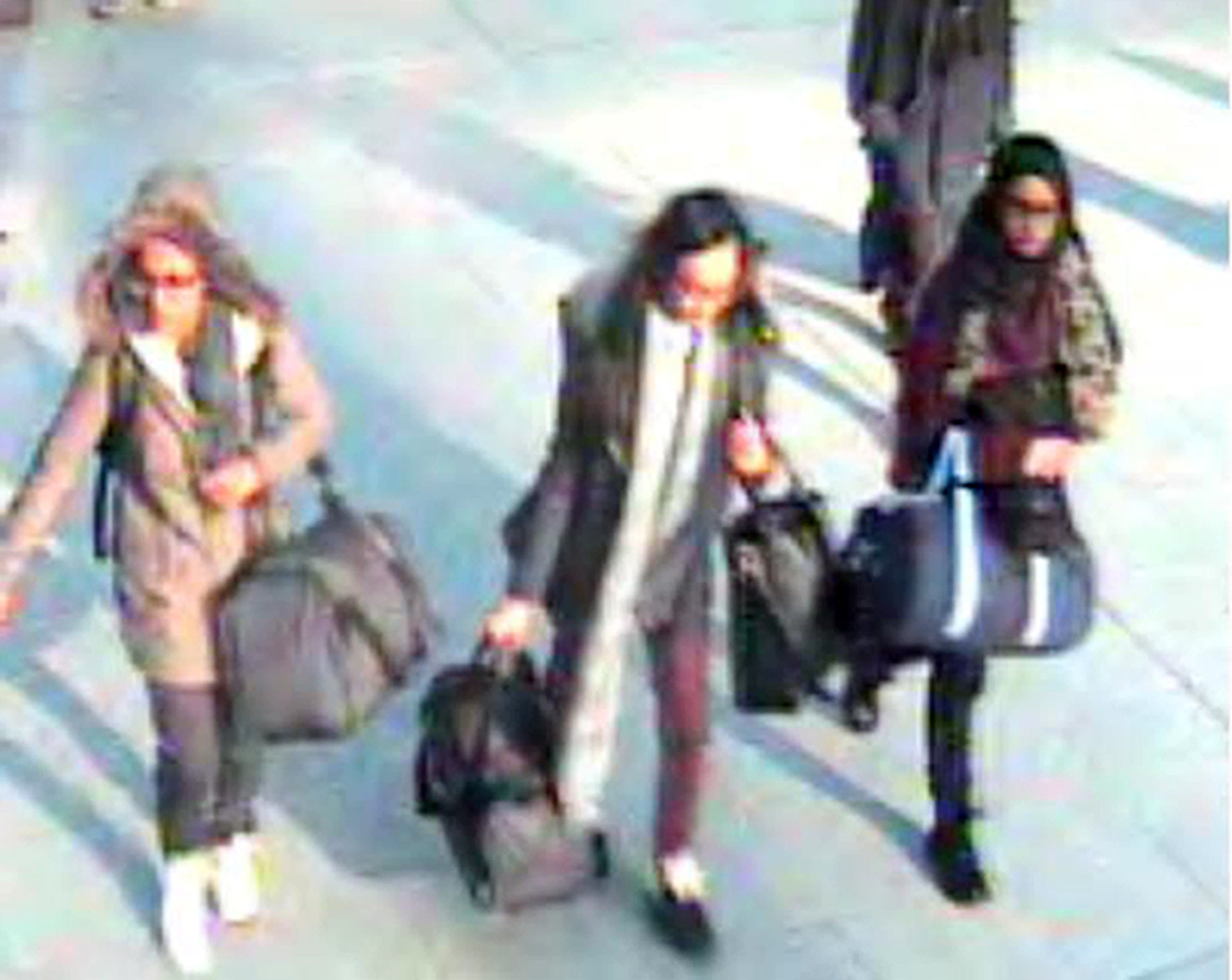Shamima Begum’s lawyers ‘won’t stop fighting’ after losing UK citizenship appeal
The east London schoolgirl, now aged 24, travelled to Syria in 2015 at the age of 15, before her British citizenship was revoked on national security grounds
Shamima Begum has lost her bid to overturn the government’s decision to strip her of British citizenship, the Court of Appeal has ruled.
But her legal team have promised they will not give up now, despite another blow for the 24-year-old on Friday.
Ms Begum’s solicitor, Daniel Furner, said: “I think the only thing we can really say for certain is that we are going to keep fighting.
“I want to say that I’m sorry, to Shamima and to her family, that after five years of fighting she still hasn’t received justice in a British court – and to promise her and promise the government that we are not going to stop fighting until she does get justice, and until she is safely back home.”
Ms Begum travelled to Syria in 2015 aged 15, and her British citizenship was revoked on national security grounds shortly after she was found in a Syrian refugee camp in February 2019.
Last year, she lost a challenge filed with the Special Immigration Appeals Commission (SIAC) against the decision to revoke her citizenship.

Ms Begum’s lawyers brought a bid to overturn that decision at the Court of Appeal, with the Home Office opposing the challenge.
In a ruling on Friday, three judges dismissed Ms Begum’s bid.
Giving the ruling, Lady Chief Justice Carr said: “It could be argued the decision in Ms Begum’s case was harsh. It could also be argued that Ms Begum is the author of her own misfortune.
“But it is not for this court to agree or disagree with either point of view. Our only task is to assess whether the deprivation decision was unlawful.
“We have concluded it was not and the appeal is dismissed.”

Speaking outside the Royal Courts of Justice, lawyer Gareth Peirce said: “Shamima Begum is held unlawfully in indefinite arbitrary detention, which is banned by every international treaty.
“She and others, other women and children, are in what is not a refugee camp but a prison camp, and that is conceded by the United Kingdom, which has stated to the UN that it agrees that Geneva Convention articles apply.
“Unlawful as that is, there is no exit. There is no way that she can escape from unlawful imprisonment.”
Ms Begum travelled to Istanbul in Turkey from Gatwick airport to join Isis with two of her close friends at Bethnal Green Academy – Kadiza Sultana, 16, and Amira Abase, 15.
Just 10 days after arriving in the city of Raqqa, Ms Begum, who is of Bangladeshi heritage, was married to a Dutchman named Yago Riedijk, who had converted to Islam.
They had three children together, all of whom later died from malnourishment or disease. They were a one-year-old girl, a three-month-old boy, and a newborn son.
Ms Begum was eventually found, nine months pregnant, in a refugee camp in al-Roj in February 2019 by a Times journalist.
In the same month, she was stripped of her British citizenship after announcing her desire to return to the UK with her then-unborn third child.

Lady Chief Justice Carr, sitting with Lord Justice Bean and Lady Justice Whipple, said any arguments over the consequences of the unanimous judgment, which could include a bid to appeal at the Supreme Court, would be adjourned for seven days.
She said: “In our judgment, SIAC was entitled to find, as the specialist tribunal established by parliament, that the issue of whether and to what extent Ms Begum’s travel to Syria had been voluntary was within the expertise of the intelligence agencies advising the secretary of state.
“Ms Begum may well have been influenced and manipulated by others but still have made a calculated decision to travel to Syria and align with Isil [now more commonly known as Isis].”
At a hearing in October, Samantha Knights KC told the court that the government had failed to consider the legal duties owed to Ms Begum as a potential victim of trafficking or as a result of “state failures” in her case.
She said in written submissions: “The appellant’s trafficking was a mandatory, relevant consideration in determining whether it was conducive to the public good and proportionate to deprive her of citizenship, but it was not considered by the Home Office.
“As a consequence, the deprivation decision was unlawful.”
However, Sir James Eadie KC, for the department, said decisions on whether someone is a victim of trafficking or whether they should be deprived of their citizenship “have fundamentally different bases and roles”.
He continued: “The focus in the trafficking regime is on the protection of the individual, and there’s really no countervailing public interest at that point.
“But here the regime is different; the regime in operation is the deprivation regime, and the rationale is entirely different: it is the protection of the public at large.”
The barrister later said the “key feature” of Ms Begum’s case was national security.
He added: “The fact that someone is radicalised, and may have been manipulated, is not inconsistent with the assessment that they pose a national security risk.”
In its ruling last year, the SIAC concluded that there had been “arguable breaches of duty” by state bodies – including the Metropolitan Police, Tower Hamlets Council and Ms Begum’s school – in their failure to prevent her from travelling to Syria.
Ms Knights told the Court of Appeal at the start of the three-day hearing that these “failures” could also have been unlawful and contributed to Ms Begum’s trafficking.
However, Sir James said the SIAC had been right to find there was “no direct connection between any potential failures, by other public authorities, in 2015” and the decision by ministers to deprive Ms Begum of her citizenship.
Join our commenting forum
Join thought-provoking conversations, follow other Independent readers and see their replies
Comments
Bookmark popover
Removed from bookmarks